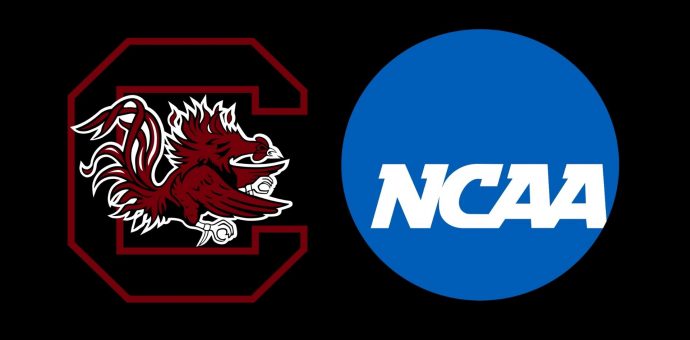Lamont Evans, a former South Carolina men’s basketball assistant coach violated NCAA ethical conduct rules when he accepted between approximately $3,300 and $5,800 in bribes from an individual associated with a professional sports agent, according to a decision released by the Division I Committee on Infractions.
The PDF to the full decision can be found HERE.
The committee classified the case as Level I-mitigated for the school and Level I-aggravated for the former assistant coach. The committee used the Division I membership-approved infractions penalty guidelines to prescribe the following measures:
- Two years of probation.
- A $5,000 fine (self-imposed by the university).
- A reduction of men’s basketball official visits to 25 during the 2020-21/2021-22 rolling two-year period (self-imposed by the university).
- A prohibition of unofficial visits in men’s basketball for a total of four weeks during the fall of 2021 and/or 2022 (self-imposed by the university).
- A prohibition of men’s basketball telephone recruiting for a six-week period during the 2020-21 and/or 2021-22 academic years (self-imposed by the university).
- A reduction in the number of men’s basketball recruiting person days by 17 during the 2020-21 and/or 2021-22 academic years (self-imposed by the university).
- A 10-year show-cause order for the former assistant coach. During that period, any NCAA member school employing him must restrict him from any athletically related duties unless it shows cause why the restrictions should not apply.
More details from the NCAA:
In exchange for the bribe payments, the coach agreed to arrange meetings with a South Carolina student-athlete and his family and influence them to retain the agent’s services, according to the decision. Though the assistant coach did not actually arrange any meetings between the agent’s associate and student-athletes during his time at South Carolina, the committee noted that his conduct violated NCAA rules and does serious harm to the integrity of college sports.
The events at the center of this case first came to light when FBI agents arrested the former assistant coach in connection with an indictment and federal criminal complaint filed in the U.S. District Court for the Southern District of New York. The case was part of a broader scheme involving money and influence in college basketball that resulted in the arrest and prosecution of multiple individuals on conspiracy and bribery charges, as well as significant NCAA reforms. The complaint alleged that the former assistant coach had accepted cash bribes from two financial advisors and an individual associated with an agent in exchange for using his position as a coach — first at South Carolina, then at another NCAA school — to influence student-athletes to retain the professional services of the financial advisors and agent once the student-athletes entered the NBA. The former assistant coach later pleaded guilty to this charge.
The arrangement with the agent’s associate and acceptance of bribes violated NCAA rules. Athletics department staff members are prohibited from receiving benefits for facilitating or arranging a meeting between a student-athlete and an agent, financial advisor, or a representative of an agent or advisor. Athletics staff members also are prohibited from representing, directly or indirectly, individuals in the marketing of their athletics ability or reputation to an agency, and from accepting compensation for the representation.
The former assistant coach also violated NCAA ethical conduct rules when he refused to participate in an interview and provide information relevant to the investigation.
The case was resolved by using a cooperative summary disposition, a process in which involved parties collectively submit the case to the committee in written form. All participating parties must agree to the facts of the case for this process to be used instead of a formal hearing.






